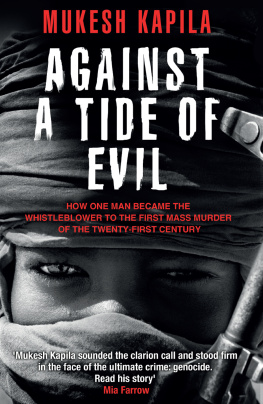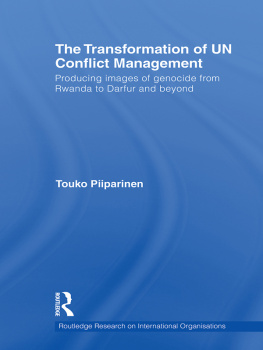LeBor - Complicity with Evil
Here you can read online LeBor - Complicity with Evil full text of the book (entire story) in english for free. Download pdf and epub, get meaning, cover and reviews about this ebook. year: 2006, publisher: Yale University Press, genre: Politics. Description of the work, (preface) as well as reviews are available. Best literature library LitArk.com created for fans of good reading and offers a wide selection of genres:
Romance novel
Science fiction
Adventure
Detective
Science
History
Home and family
Prose
Art
Politics
Computer
Non-fiction
Religion
Business
Children
Humor
Choose a favorite category and find really read worthwhile books. Enjoy immersion in the world of imagination, feel the emotions of the characters or learn something new for yourself, make an fascinating discovery.

Complicity with Evil: summary, description and annotation
We offer to read an annotation, description, summary or preface (depends on what the author of the book "Complicity with Evil" wrote himself). If you haven't found the necessary information about the book — write in the comments, we will try to find it.
Complicity with Evil — read online for free the complete book (whole text) full work
Below is the text of the book, divided by pages. System saving the place of the last page read, allows you to conveniently read the book "Complicity with Evil" online for free, without having to search again every time where you left off. Put a bookmark, and you can go to the page where you finished reading at any time.
Font size:
Interval:
Bookmark:
Complicity with Evil
BY THE SAME AUTHOR
A Heart Turned East:
Among the Muslims of Europe and America
Hitlers Secret Bankers:
The Myth of Swiss Neutrality During the Holocaust
Seduced by Hitler:
The Choices of a Nation and the Ethics of Survival
Miloevi: A Biography
City of Oranges:
Arabs and Jews in Jaffa
The United Nations in the Age of Modern Genocide
Adam LeBor

Copyright 2006 by Adam LeBor.
All rights reserved.
This book may not be reproduced, in whole or in part, including illustrations, in any form (beyond that copying permitted by Sections 107 and 108 of the U.S. Copyright Law and except by reviewers for the public press), without written permission from the publishers.
Set in Minion Roman type by Integrated Publishing Solutions. Printed in the United States of America by R. R. Donnelley, Harrisburg, Virginia.
Library of Congress Cataloging-in-Publication Data
LeBor, Adam.
Complicity with evil : the United Nations in the age of modern genocide / Adam LeBor.
p. cm.
Includes bibliographical references and index.
ISBN-13: 978-0-300-11171-2 (cloth : alk. paper)
ISBN-10: 0-300-11171-1 (cloth : alk. paper)
1. United Nations. 2. United Nations. Secretariat. 3. Genocide. 4. Security, International. I. Title. II. Title: United Nations in the age of modern genocide.
JZ4971.L43 2006
341.23dc22 2006017319
A catalogue record for this book is available from the British Library.
The paper in this book meets the guidelines for permanence and durability of the Committee on Production Guidelines for Book Longevity of the Council on Library Resources.
10 9 8 7 6 5 4 3 2 1
IN MEMORIAM
ydowska Organizacja Bojowa
ydowski Zwiazek Wojskowy
WARSAW GHETTO,
JANUARY-MAY 1943
No failure did more to damage the standing and credibility of United Nations peacekeeping in the 1990s than its reluctance to distinguish victim from aggressor.
Executive summary of the United Nations 2000 report on its peacekeeping operations
This book takes its title, Complicity with Evil, from the United Nations report on its peacekeeping operations during the 1990s, published in August 2000. The report was commissioned by Secretary General Kofi Annan, who convened a high-level panel of diplomats, military officers, and humanitarian officials with experience of UN operations in crisis zones. The authors proposed new approaches for peacekeeping after the failures in Srebrenica and Rwanda, so as to confront the challenges of the post-Cold War world of conflicts fought by rogue states and anarchic militias. The reports fifty-four pages contain a series of detailed recommendations about the conduct of future operations, and an outline of institutional and attitudinal changes needed within member states, the Security Council, and the Secretariatthe permanent body of UN officialsto make peacekeeping more dynamic and effective. Probably the documents most important sentence is contained in its executive summary: Impartiality for United Nations operations must therefore mean adherence to the principles of the Charter: where one party clearly and incontrovertibly is violating its terms, continued equal treatment of the parties by the United Nations can in the best case result in ineffectiveness and in the worst may amount to complicity with evil.
This was certainly the case in both Srebrenica and Rwanda, and remains so in Darfur. The Dutchbat battalion of UNPROFOR, the UN protection force deployed in Croatia and Bosnia, stationed in the UN-declared safe area of Srebrenica, was unable to prevent the fall of the town in July 1995 and the subsequent slaughter of up to 8,000 Bosniak (Bosnian Muslim) men and boys. UNAMIR, the UN assistance mission for Rwanda, failed to prevent the genocide of 800,000 Tutsis and moderate Hutus during spring and early summer 1994, despite the valiant efforts of its commander General Romeo Dallaire. By spring 2006 the Sudanese government had been waging a campaign of genocide across Darfur for three years, but the United Nations had not even deployed peacekeepers there, relying instead on a weak and underfunded mission of African Union cease-fire monitors.
But do these actions really make the United Nations guilty of complicity with evil? Complicity is an emotive term. The dictionary defines it as being an accomplice in a criminal act. Complicity can be active or passive. The United Nations did not intentionally assist the Bosnian Serbs to kill the men and boys of Srebrenica, the Hutu militias to slaughter their Tutsi victims, or the Sudanese Janjaweed paramilitaries to burn the villages of Darfur. UN peacekeepers are mandated to save lives, not take them. Secretariat officials believedand believe themselves to be acting with the best of intentions, steering the United Nations through a perilous middle path of impartiality and neutrality that by favoring neither side would allow the organization to do the maximum good. When in January 1994 Kofi Annan, then head of the Department of Peacekeeping Operations, refused General Dallaire permission to raid the Hutu arms caches, he believed that such an action was outside UNAMIRs mandate and would imperil both the United Nations mission in Rwanda and the UNs status as an impartial interlocutor.
The members of the Security Council assumed, or at least hoped, in spring 1993 that by passing resolutions declaring Srebrenica a UN-protected safe area, they were taking a meaningful step to protect the innocent. A decade later, the failure of the Security Council and the General Assembly to take any meaningful action against the Sudanese government must be weighed against the need to keep channels open to Sudan and so ensure the continued operation of the United Nations humanitarian operation in Darfur, which has saved hundreds of thousands of lives.
Thus the argument for the defense. But there is another definition of complicity, which is a nuanced as well as an emotive term. To be complicit in a crime does not necessarily mean actively aiding and abetting the perpetrators. It can also mean failing to act on the knowledge that crimes are being, or are likely to be, committed, or failing to try at least to prevent them happening, despite having the means to do so. This is the principle of command responsibility which has evolved through the legal rulings of the UNs own tribunals for the former Yugoslavia and Rwanda. And this is the argument for the prosecution. In this book I show that the United Nations was, and remains, at the very least, passively complicit with evil: in Bosnia from 1992 to 1995nowhere more than at Srebrenica in Rwanda in 1994, and in Darfur since 2003.
After declaring Srebrenica a safe area, the Security Council extended that status to another five Bosnian towns and cities, yet its membersall of the UN member statesconsistently failed to provide enough troops to provide effective protection. UN commanders themselves repeatedly refused to authorize NATO air strikes requested by Dutch UN peacekeepers at Srebrenica, despite having both the mandate and the means to do so, until it was too late to stop the Serb onslaught. When the town finally fell, the Dutch UN troops ignored the pleas of Bosniak men and boys who had taken refuge in their compound and forced them into the hands of their Serb executioners. Rwanda remained a UN member state during the genocide there and even retained its seat on the Security Council, its ambassador privy to every discussion about how to stop the killings his government was carrying out. As news of the slaughter emerged, the Security Council, rather than reinforce UNAMIR, actually reduced its force from 2,500 troops to 270. Sudan has enjoyed all privileges of United Nations membership from the start of its scorched-earth campaign in Darfur in 2003 to the present day, and remained a member of the UNs Commission on Human Rights in 2003, 2004, and 2005. All of these decisions ultimately resulted, whether intentionally or not, in complicity with evil.
Next pageFont size:
Interval:
Bookmark:
Similar books «Complicity with Evil»
Look at similar books to Complicity with Evil. We have selected literature similar in name and meaning in the hope of providing readers with more options to find new, interesting, not yet read works.
Discussion, reviews of the book Complicity with Evil and just readers' own opinions. Leave your comments, write what you think about the work, its meaning or the main characters. Specify what exactly you liked and what you didn't like, and why you think so.












